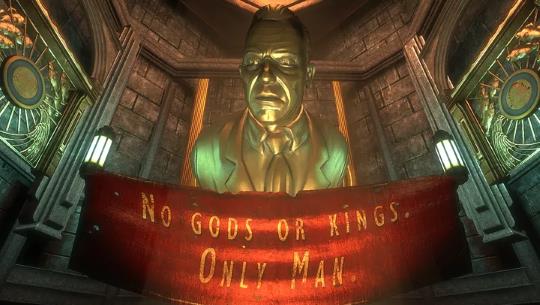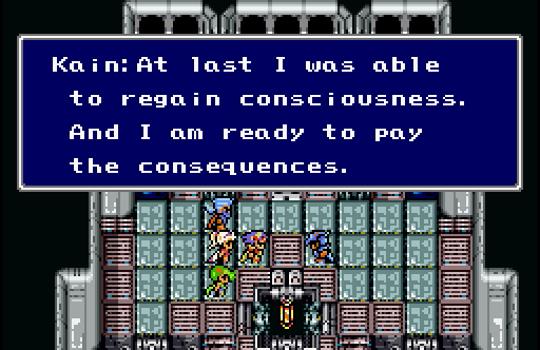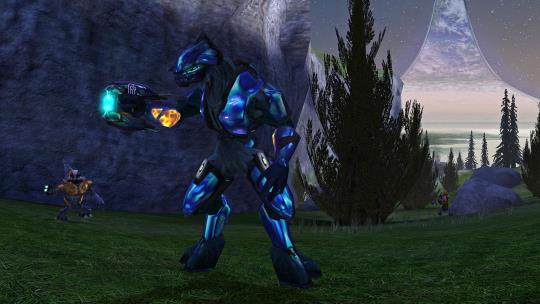Is There a “Starter Kit” For Games Criticism?

It figures that the first concept to break me of my writer’s block is one that I cannot chance to scamper away like that annoyingly quick insect that flees beneath the couch never to be seen again. As I begin this it is 11:11p.m., time for me to go to sleep so that I might have some semblance of conscious thought reserved for my day job, and yet I fear that if I do so I shall never tap and tack these thoughts into a document.
GoodGamesWriting.com is a Twitter account intended to cultivate and share exemplary pieces of video games journalism and analysis. It is a project run completely by volunteers that has suffered the misfortune of more ups and downs than a broken carnival ride. Today they have sought to kickstart a new weekly conversation starter in the Twitter community, beginning with “what games would you include for a beginning game critic’s ‘starter kit’?”
“Which games,” the Twitter account ponders, “demand closer examination to sharpen your skills?” The common go-to’s of Bioshock and Spec Ops: The Line are mentioned, as well as recent hit The Legend of Zelda: Breath of the Wild.
I wonder what my response would have been had the #GamesStruck4 hashtag not trended those past twenty-four hours? It had already driven me to consider the four greatest games to not only stand as the cornerstone for my tastes, but drove me to appreciate and study design to begin with. The games that had given me the all too common dream of being a game developer only to be crushed by dreadful reality of College programming courses and my inability to speak the language of mathematics. While each of these games is cherished by me, I’m not sure any of them save Final Fantasy Tactics begs the “starter kit” status.
Chance it might also have been that I’d read several pages of C.S. Lewis’ An Experiment in Criticism just hours before seeing GoodGamesWriting’s tweet. A phenomenal experience that has been equal parts vindication as it has slapped at my wrists, one of the passages that had stood out to me was a summary of Lewis’ intent.
Whatever the value of literature may be, it is actual only when and where good readers read. Books on a shelf are only potential literature. Literary taste is only a potentiality when we are not reading.
An Experiment in Criticism, p.104, C.S. Lewis
Now, that passage relies on a lot of concepts Lewis had spent the prior 104 pages setting up, particularly to define what “good reading” was. However, I wanted to use that quote in particular as it is one of many that stands out to me as relevant to the topic at hand.
Even back in 1992 when I played it, I would not have considered Final Fantasy IV the literary equivalent of video games. However, the impact it had on a young seven year-old boy that had never realized a video game could be taken as seriously and dramatically as film would awaken the spirit necessary to later become a critic. It was because of Final Fantasy IV (known in America as Final Fantasy II at the time) that I discovered the potential of video games as a narrative medium.

I swear I’ll only betray you twice! Third time in the party is a charm!
Just as An Experiment of Criticism tries to take the qualitative label away from the book and fix it instead upon the method of reading, I think we should take our concept of this “starter kit” and flip it around.
The best games to begin your journey as a games critic are the games that drive you to think more deeply about what you’re playing.
To quote Taylor Hidalgo and his own blog The Thesaurus Rex in response to this question:
“Games are a whole bunch of things, which makes it hard to narrow down precisely how to set about giving a structure to the various ways games should be criticized. Further, I think there are a lot of ways games could be criticized but never have been, and those are perspectives that I struggle to create even as I try. As much as videogames are a simple and often silly entertainment, they’re also bigger than most of the critics who take them on.”
I think the inherent problem with a starter kit concept is that you are beginning to define what makes a certain game “smarter” than others. Intentional or no, this becomes a form of academic gatekeeping that has been seen and fought repeatedly through every form of art. C.S. Lewis and J.R.R. Tolkien fought tirelessly against the notion that fantasy was a childish genre. It still took several generations and authors before the genre could be openly embraced by the larger public (whether that audience approaches the genre with habits of good reading or bad, as defined by C.S. Lewis’ experiment, could be a potential discussion/argument for another day).

Having to deal with the incredible power and shields on the Elites with limited resources on Legendary opened the depths of this game up to me.
I love Bioshock and Spec Ops: The Line very much, but the only reason they are considered more worthy than a game such as Halo: Combat Evolved is because they “have something to say”. There is an air about their narrative that suggests a sophistication demanding deeper study and reading, and therefore are constantly referenced in regards to deeper criticism. However, it is only because of Halo: Combat Evolved and my repeated playthroughs of its campaign on Legendary that I began to learn to break down and comprehend a game’s mechanics on a deeper level. Without Halo, you wouldn’t have me releasing a twenty-minute video on the map design of Metroid’s worlds or the impeccable fusion of thematic elements with gameplay in Toren.
Not all games are “high art”, but a game doesn’t need to be to encourage a young gamer to more deeply read into and think about its mechanics, narrative, or the blending together of the two. Even if a game is a perfect sample of high art in the medium, it does not mean someone can better understand game design through playing it.
Now I must recall the ending monologue of Pixar’s Ratatouille, wherein Anton Ego finally understands what it was Chef Gusteau was trying to say by “anyone can cook”. It is not that anyone can cook, but that an excellent cook can come from any origin. So, too, can a good understanding of games analysis. Even if the games in which that player has begun their journey are considered “rubbish” by some assembly of academics, that player will naturally come to more deeply appreciate the games recognized by those very same scholars – and perhaps discover titles they might have otherwise ignored.
Which is why I would not recommend any game in the “starter kit” but the games you love the most. If I could give up and coming critics any advice, it would be a lesson I am only now learning too late:
Do not play something just because others praise it. Do not play something just to be “up to date” or part of the conversation. Instead, play what you want. Play what entices you. If you enjoyed it so much you crave more, then go back and play it again. Perhaps even on a higher difficulty! Play it until you’re sick of it, then go back immediately once you sense the itch to play it some more.
If it is in your nature to think more deeply about the art you consume – to be affected by it in a way deeper than your peers seem to be – then you will naturally begin to develop the senses of a critic on your own.


